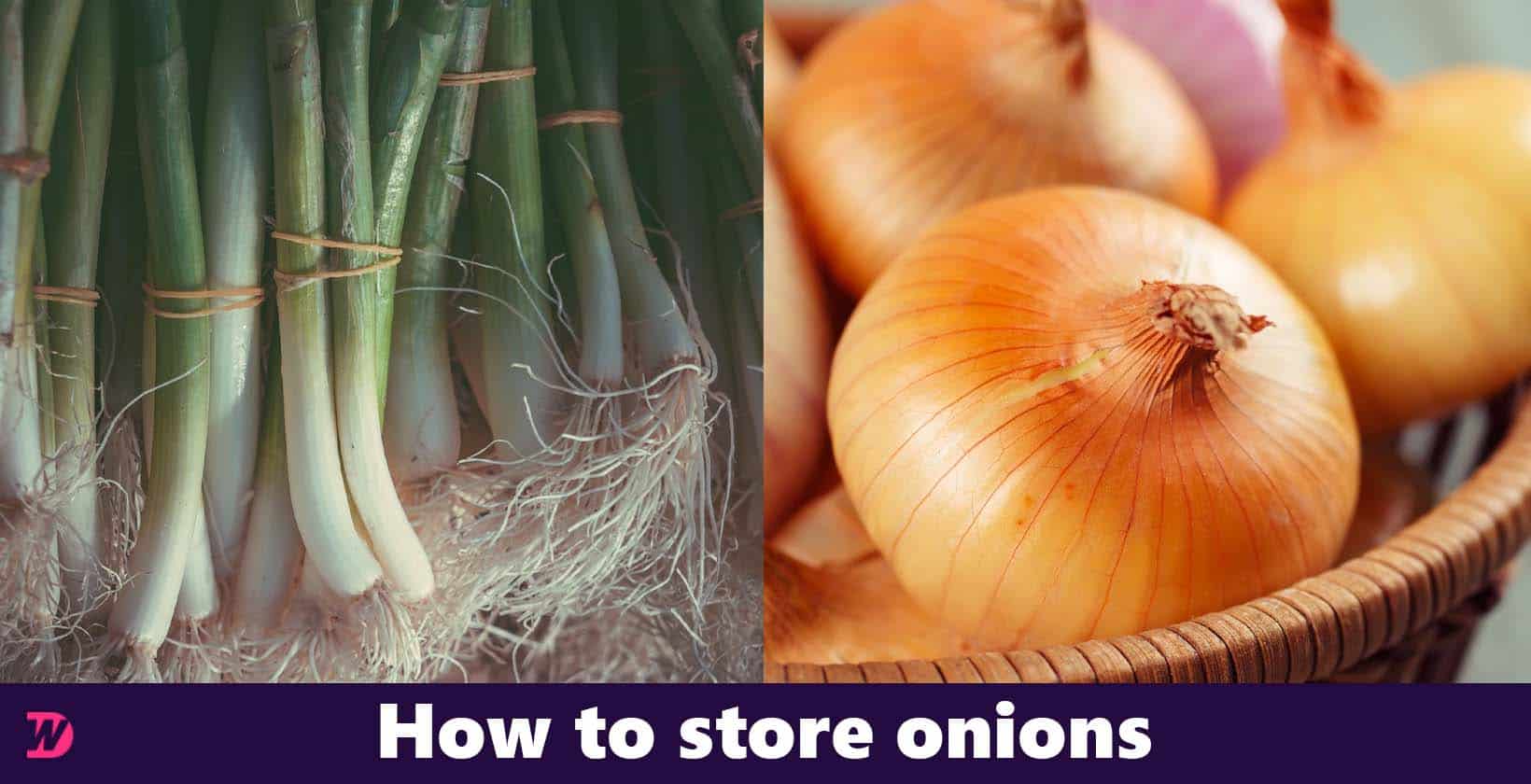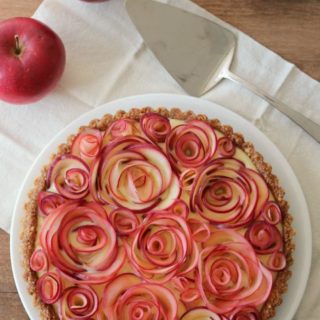Onions are a staple ingredient in many households and an essential part of many recipes. The way you store your onions can have a significant impact on their freshness, flavor, and safety. Incorrect storage of onions can lead to the growth of bacteria and fungi, which can cause foodborne illness and spoil the taste of your dishes. Below we’re looking at the importance of proper onion storage so that you’ll have a better understanding of how to store your onions correctly and keep them fresh for longer.
VIEW IN GALLERY
How Long Do Onions Last?
The shelf life of an onion depends on several factors, including the type of onion, storage conditions, and whether it’s been cut or left whole. Here’s a rough guide to how long you can expect different types of onions to last:
- Whole, uncut onions: When stored in a cool, dry, and dark place, whole onions can last for several months, sometimes even up to a year. Make sure to keep them away from direct sunlight and any sources of moisture to extend their shelf life.
- Cut onions: Cut onions, on the other hand, will only last for a few days to a week, depending on storage conditions. It’s best to keep them in an airtight container in the refrigerator to prevent spoilage and slow down the growth of bacteria.
- Cooked onions: Cooked onions will last for up to five days in the refrigerator, but they may start to spoil sooner if they haven’t been stored properly. Make sure to store cooked onions in an airtight container and keep them away from any raw food to prevent cross-contamination.
Best Way to Store Onions
The best way to store onions is in a cool, dry, and dark place, away from direct sunlight and any sources of moisture. By following these simple tips below, you can ensure that your onions remain fresh, delicious, and safe to eat for as long as possible. Not only will this help you save money, but it will also ensure that the dishes you prepare with these onions are of the highest quality.
Cool, dry places
Store whole, uncut onions in a cool, dry, and dark place, away from direct sunlight and any sources of moisture. A pantry or a cool basement are both good options for onion storage.
Try reducing moisture
Excessive moisture can cause onions to spoil more quickly, so it’s essential to store them in a place that is relatively dry. To reduce moisture levels, you can try placing a piece of paper towel or a dry cloth between the onions to absorb any excess moisture.
Away from light
Light can cause onions to sprout, so it’s important to store onions in a dark places. Light can also cause the flavor and texture of onions to deteriorate, so it’s best to store them away from any sources of light.
How to Store Green Onions
Green onions have a shorter shelf life than other types of onions and should be stored in the refrigerator. Wrap them in a damp paper towel, place them in a plastic bag, and store them in the crisper drawer of your refrigerator. This will keep them fresh for up to a week.
How to Store Cut Onions
For cut onions, the refrigerator is the recommended storage method. Be sure to keep onions in the crisper or a low-humidity area of the fridge, as high humidity can cause the onions to become soft and spoil more quickly. Additionally, it’s a good idea to use cut onions within a few days to a week to ensure their freshness and flavor. It’s also important to keep cut onions separate from other food items to prevent cross-contamination.
Where to Store Onions
When it comes to storing onions, there are several options to consider, including the counter, the refrigerator, and even the freezer. Let’s take a closer look at each option.
Can onions be stored on the counter?
Whole, uncut onions can be stored on the counter, as long as they are stored in a cool, dry, and dark place, away from direct sunlight and any sources of moisture. This will help prevent spoilage and prolong their shelf life.
When storing onions on the countertop, it’s also important to keep them in a well-ventilated area to allow for proper air circulation. Additionally, it’s a good idea to store onions in a paper or mesh bag, as this will help keep them dry and prevent them from touching each other, which can cause damage.
Can onions be stored in the refrigerator?
Both cut and whole onions can be stored in the refrigerator. Cut onions are more perishable than whole onions, which is why the refrigerator is the recommended storage method. While whole, uncut onions can be stored on the counter, they can also be stored in the refrigerator if you prefer.
Can you freeze onions?
It’s possible to freeze onions but it’s important to keep in mind that the freezing process can alter their texture. To freeze onions, chop or puree them and then store in an airtight container in the freezer. Onions will maintain their quality for up to six months when stored in the freezer.
It’s also important to note that frozen onions are best used in cooked dishes, as their texture can become slightly mushy when thawed. If you plan to use frozen onions in raw dishes, such as salads or sandwiches, it’s best to chop or puree them before freezing, as this will help maintain their texture when thawed.
How Do You Keep Onions from Rotting?
To prevent onions to rot, it’s important to store them in an optimal environment that maintains freshness and taste. It is crucial to store onions in a location that is cool, dry, and devoid of light to prevent rot. For cut onions, be sure to keep them in a sealed container within the refrigerator and away from other food items to avoid any chance of contamination.
How Do Farmers Store Onions?
Farmers typically store onions in a storage shed or a root cellar. They may also store them in baskets or boxes and cover them with paper or burlap to keep them protected from light and moisture.



















